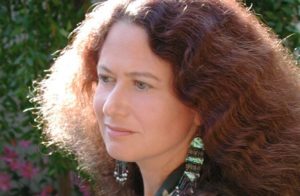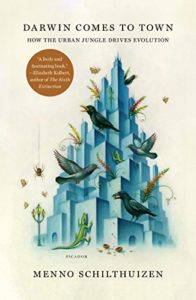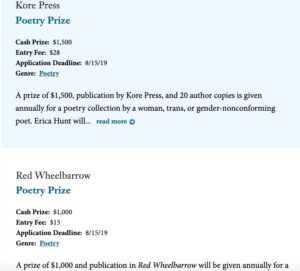 I heard Jane Hirshfield read this poem at a benefit for the beautiful Columbia Gorge. I kept thinking of it every time I cooked something with carrots or onions, which is pretty often. So I asked and she graciously sent me a copy
I heard Jane Hirshfield read this poem at a benefit for the beautiful Columbia Gorge. I kept thinking of it every time I cooked something with carrots or onions, which is pretty often. So I asked and she graciously sent me a copy
As If Hearing Heavy Furniture Moved on the Floor Above Us
As things grow rarer, they enter the ranges of counting.
Remain this many Siberian tigers,
that many African elephants. Three hundred red-legged egrets.
We scrape from the world its tilt and meander of wonder
as if eating the last burned onions and carrots from a cast iron pan.
Closing eyes to taste better the char of ordinary sweetness.
You can heae her read at Dominican University on September 4, to support immigrant families.

 It’s been awhile since I posted a prose poem. This one, from Poetry Daily, caught my eye although we are still in the the long light days as summer wends to a close.
It’s been awhile since I posted a prose poem. This one, from Poetry Daily, caught my eye although we are still in the the long light days as summer wends to a close. I just finished this book, Darwin Comes to Town by Menno Shilthuizen, about adaptation and evolution in urban environments, which seemed somewhat hopeful. It’s a discussion about how quickly certain species change to thrive in cities. Stories include the hawksbeard dandelion, which evolved to produce heavier seeds so their little parachutes would keep them in the island of green instead of floating off onto asphalt and how crows learn to throw heavy-shelled walnuts into intersections, wait for cars to run over them and then when the light changes, run out to grab the walnut meat after the cars crush the shells.
I just finished this book, Darwin Comes to Town by Menno Shilthuizen, about adaptation and evolution in urban environments, which seemed somewhat hopeful. It’s a discussion about how quickly certain species change to thrive in cities. Stories include the hawksbeard dandelion, which evolved to produce heavier seeds so their little parachutes would keep them in the island of green instead of floating off onto asphalt and how crows learn to throw heavy-shelled walnuts into intersections, wait for cars to run over them and then when the light changes, run out to grab the walnut meat after the cars crush the shells. Almost every day, a new solicitation for a poetry contest pops into my inbox. I have read articles and heard rumors about their transparency or lack of transparency. But even if all entries are read blind, and the awards are based solely on what the appointed judges fell is the best work (or the best of the screened entries provided to them), I am writing this very short rant against the whole dynamic of the poetry contest.
Almost every day, a new solicitation for a poetry contest pops into my inbox. I have read articles and heard rumors about their transparency or lack of transparency. But even if all entries are read blind, and the awards are based solely on what the appointed judges fell is the best work (or the best of the screened entries provided to them), I am writing this very short rant against the whole dynamic of the poetry contest.